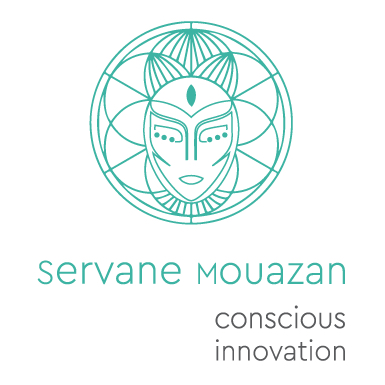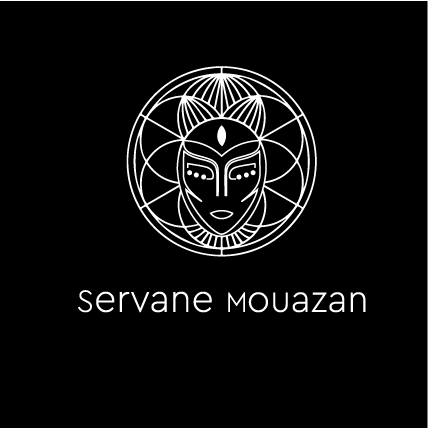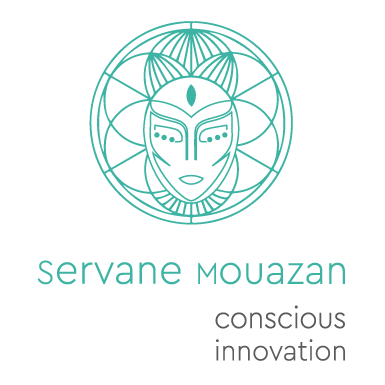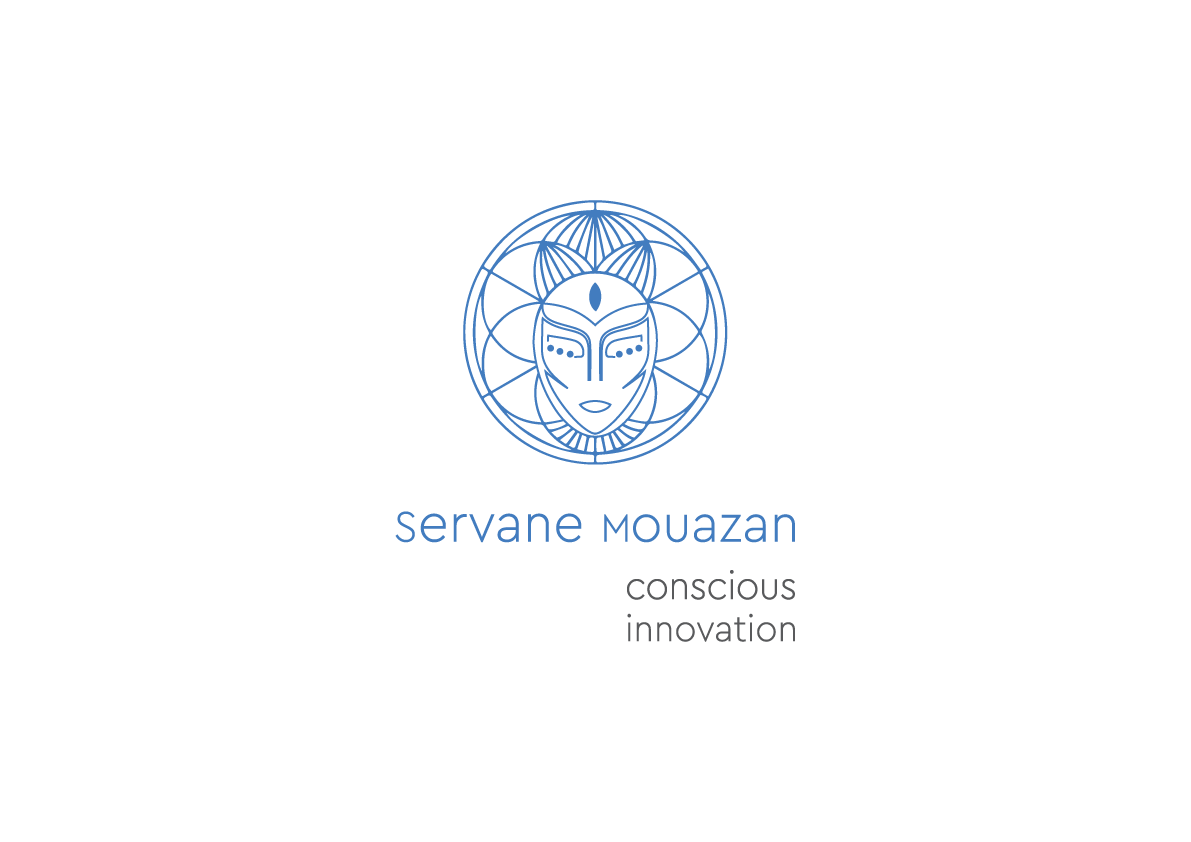How to Develop Empathy and Allyship with Emilie Goodall
In this episode of Be & Think in the House of Trust, I am listening to Emilie Goodall, a seasoned leader with nearly 20 years of experience advocating for and initiating positive impact through finance, working to help organisations understand and improve their impact on people and the planet.
After a dialogue with other social finance professionals about individuals’ experience of racism, Emilie started to notice a very human desire from people who have not experienced racism directly to empathize with others who have and bring in their own experiences, perhaps around other forms of discrimination.
But something didn’t sound right.
In this episode, you might notice I repeat the same question several times, as I give Emilie the time and space to think and reflect deeply on her answers. Throughout our discussion, we touch on themes such as deep listening, presencing and the benefits of being more conscious in our thoughts and actions.
Highlights from this episode:
(02:02) Igniting a culture of care and kindness
(03:47) Be in service to others
(06:11) Being present in the moment
(09:28) Showing up without the ego
(11:26) The importance of trust in building relationships
Useful Links:
Connect with Emilie on LinkedIn: https://www.linkedin.com/in/emiliegoodall/
{{footer}}
Transcript
What attitudes are in the way when you want to show up for others and be a real ally? Have you ever been in a conversation where your assumptions, your discomforts or beliefs, took too much space and you realized that what you thought was empathy could do more harm than good? Hi, I'm Servan, and this is Be and Think in the House of Trust podcast four and Bilis who love to invest in social and environmental change.
I'm keen to reflect on the mental models that make or break the impact they seek to create. Our guest today in the House of Trust is Emily Goodall. Emily assist finance as a forest for positive change, and she applies this in our various roles at the intersection of private, public, and civil society.
After a dialogue with other social finance professionals about individuals experience of racism, Emily started to think she noticed that a very human desire from people who have not experienced racism directly to empathize with that experience and to bring in their own experiences, perhaps around other forms of discrimination.
But she feels there's a risk in bringing your own experience into a dialog. This episode is a bit different. You'll notice I'm asking Emily the same questions a few time, uh, allowing her some time to reflect deeply on her topic and build a rich perspective for herself and for us. Two. I hope you enjoy it.
Emily, you shared this question, how can we ignite a culture of care and kindness in our workspaces and communities? How can we be present and show empathy without taking too much space? And how can we be at the service of others without being passive to the point of being useless as an ally work peer, or.
So Emily, what do you want to think about ?
Some big questions there. Well, I think it was prompted, and it may be worth sharing these example that prompted some of these questions or in a another great dialogue with some other women in social finance, which was really fascinating to me because it was a discussion around individual's experience of racism.
and there's a very human desire that I sort of felt and witnessed within that group of the desire from people who have not experienced racism directly to empathize with that experience. And so to bring in their own experiences perhaps around, um, other forms of discrimination perhaps that they may have been on the receiving end of.
And I realized in that discussion, and I've seen it happen before. There, you know, there's a sense of the, the risk of, in doing so, either minimizing that person's experience or seeking to sort of co-opt that person's experience. And yet how do you channel I suppose, that desire to, to empathize to, to, to actively listen, to be a supportive ally.
And I think, you know, that was that example. But I think that can show up in lots of different areas of, of life and, and dialog. And so it was, um, something that was reflecting on, on how to do that, to be an active ally essentially. And I think, you know, through showing that kindness and caring and that was what prompted some of these reflections.
And one more, do you think or feel or want to say? I think on
that and then prompted a good discussion, I think be between us. And I always really appreciate, uh, your prompting and your questions around this. So, so thank you once again for inviting me into this discussion. Um, I always feel like I get, uh, sort of learn or get some illumination through it, so thank you.
But I think the, it, it prompted some, some thoughts about how just as an active listener be how much you are in service. So that's your, you are an illustration of that. So then, but that's, that's, you are in service to others and that in and of itself can be enough and can actually be hugely powerful without having to come with solutions, without having to come with answers, without having to propose, you know, and here's what we do next.
There's absolutely, you know, no need for that. Often, just being that active listener can, can be very much a service to, to others in, in all forms of dialogue and, and connection being
service to others. And one more. Does this thinking brings up in you?
Well, I suppose it's a good challenge then as to how to show up in that way.
Mm-hmm. in many of the interactions that we have day-to-day, whether that's, you know, connecting someone walking along the streets or in a very intentional way in a meeting or in a conversation with a friend. You know, you can think about how, I think, not to underestimate the potential. Of just showing up and listening to other people and what that can unlock and how that can be, you know, hugely constructive in and of itself without being, it's not a passive act in a sense.
So what would you be able to, to be or do or feel more of that we could maybe think about in this, in this time that we have together?
Oh, I don't, I suppose there's also a part of letting go of needing to accomplish anything
letting
go. You know, it doesn't have to be always, I'm making this intervention in order to get to this point.
It's not like a linear sequence of if I do this, then this happens. So actually, All together letting go of needing to accomplish anything and, and not knowing where that, that act will go. Um, it doesn't really matter. It's the power of the act in and of itself.
Hmm. So there was something about showing up and letting go.
Yeah. May, maybe feels sometimes. That's a good point. It can be feel like a, it's not inconsistent, you know, they're not , they're not mutually in exclusive. Um, they can work very powerfully together.
Hmm. So Emily, what do you think is, is in the way of showing up and letting go?
Oh, I suppose there's a lot of, a lot of, as well, I feel one can speak of, you know, spending an inordinate of time either thinking about what's happened or what might happen rather than just being, you know, present in the moment.
And I think one of those barriers to letting go, for me at least, is. You know, we have, um, lots of thoughts running through all our heads and you always thinking about what next and what needs to happen and what you might desire as an outcome. But that's the challenge, to let that go to just, you know, be in the moment, be of service to others and trust that, you know, we're in the house of trust and trust that, um, that is probably more than enough, um, often.
So just want burning to ask again. What else, uh, might be in the way of, of us showing of you maybe showing up and letting go. I suppose that is,
there is an opportunity there for the work when, you know, to do on, on, on myself and ourselves around when you are showing up, being conscious. how you're sharing up, you know, are you ready to be in that moment?
Are you still thinking about what's just happened or, you know, you mentioned sort of running from things to things. Often the diary can be quite busy with, with things back to back, and you're still sort of half thinking about what you've just been doing when you can come into another space. So I suppose there's.
The work for us to be, do, to be, to be mindful of how we show up in the moment and how, you know that, that presenting, I think I was, I was reading something about sort of, what's it called, absenting versus presenting and how the energy that you bring can, can, can suck energy out of a room if you, if you're not careful just in the way that you show up.
So how. , how can you ground yourself in that sort of presenting rather than absence things of being aware of the energy you bring and, and how you, how you turn up in, in any given moment, is there any interaction? And of course we're not, we're not wholly rational beings at all. So, you know, , there's all sorts of things going on with each of us at any point in time.
And as suppose, just being cognizant of that and. And, and, and owning it. If you turn up in not quite the right mood and, you know, owning that and, and, and by owning that, I mean being reflective of it. And then if it hasn't quite gone as you've wanted or you've not quite turned up in the spirit you intended, there's power in just acknowledging that as well.
And sometimes apologizing essentially. Maybe I'm thinking too much of my children here, but you know,
Oh, what, what do they, what's coming up for you when you, thinking too much of your
children? Yeah, I just thinking like, you know, as a, as a busy mom, you know, like the importance of clearing your, your head space before showing up for them as well.
As much as possible. I mean, it applies to everyone, but I suppose it, um, it certainly applies to my children. .
Wow. And Emily, I'm just gonna ask again what else might be in the way? What else do you think might be in the way of you showing up or, and letting go?
Probably many things, but I suppose I'm trying to clear my mind a little even in this conversation.
So , nothing more coming immediately to the, to the four.
So you listed a couple of things in our, in the past minutes and what, what's most in the way, do you. Of showing up and letting go for
you? Well, I suppose it is that, um, I think we've touched on before, just trying to remove, you know, when, when, I mean, sort of clearing things, it's, it's in that presence scene is in order to remove as much as possible the ego in the, in the connection on the conversation.
So the fact that when you're showing up is not, it's not about you. The idea of being in service to others. That's what I, meaning, I suppose, in relation to clearing things before engag. My young children as much as possible. It's, it's not about me turning up to, it's about me being a service to them. And I think that applies to, as I said, in many different contexts and lots of different interactions.
So as much as possible, they were all kind of ego-driven creatures, I'm sure is, is to, to remove that as much as possible. And I think, you know, going right back to the beginning of the conversation, one of the challenges in that desire to empathize is you are putting your how to do that without putting your ego.
in the way of the listening or the, uh, I dunno if that's making sense, but in, in, in, in those kind of dialogues, when someone's sharing a really personal experience with you, h how to remove the ego in the response to that, they did not make it about yourself, but even in that reaction. But it's about honoring what they've shared with you.
And, and that can apply not just in that example. I'm sort of sharing, you know, difficult experiences of, of racism, say, but in, I can apply lots of different contexts of where someone's sharing something with you.
Mm. So there is that thing around empathy and as, as, um, one of our guests pointed before is that the empathy, putting yourself in someone else's shoes will never happen.
So how do you, how do you connect all these things? You're removing the, you said removing the ego. Listening be present, showing up, but what's, what's the whole, all the connection there? Good question. ,
I think there's an element of, back to the concept of, of trust. It's an important brick. I think in that, that building of any relationship or any connection is, am I trusting that someone's really listening to really hearing me?
And not just jumping to their own experience or their own, which comes from a well-meaning place that can create a, a barrier at the same time. That's something I've certainly experienced and not through any malice or, you know, you know, bad intention on the part of the other. But when someone seeks to immediately try and empathize with and you're thinking, actually, did you really, did you really hear me?
You know, did you really hear what what I was saying? And I was expressing. You know, a feeling through that experience rather than just an experience for you to then share with me your experience . Um, so it's, I think just trying to be, or continuously challenge be challenged by this, I'm sure, but continue to try and, and challenge myself around that in those, those sorts of interactions.
To think, oh, hang on, that, that's, that didn't feel great when someone did this to me as well. I remember that it's, it's a human desire to empathize and share your experiences, but sometimes it can get in the way of the conversation it's trying to be had. Wow.
That sounds like a bomb. If we now come and say empathy can be really, really a sort negative impact here, or empathy as we know it, what do you
think?
I dunno. I suppose it's an, I'd have to go back and look up empathy. I think maybe I'm misinterpreting it. Maybe that's not fair, but I think it has its place, but. It is a very important and powerful human way to re, to react to things. But I think there's, there's ways that that can be done well and ways that that can be done in a way that that takes away from the connection sometimes.
See, I'm hearing that there's a, a place for being with someone. Listening to their story, not having the urgency to share our own story to show that we understand, but having that kind of detachment and being detached, not as such, uh, of not caring.
Yeah. Yeah. It's detachment, but I don't know what the word is.
It's a good challenge. Is it detachment? Is it because in a way that is caring? Cause it's not disinterest, it's not necessarily even a lack of empathy. I think it's just ways and means of. How to respond. Appropriately or adequately. And sometimes silence can be extraordinarily powerful in that a sort of intent, intentional silence in engaged silence, if that makes sense.
Wow. So Emily, at the beginning, you wanted to ask yourselves, you know, how can we be present and show empathy without taking too much space? And also how can we be at the service of others without being. To the point of being useless as an ally work peer or leader, then I wonder how far are you right now?
Uh, always, always feels like at the foothills. always at the foothills of that. But it's, um, it's really good to to talk with you about it because it, yeah, it takes it to that next level of reflection on, you know, how we can all show up and with intent and with caring intent. .
So if you had one question you wanted to shape or build for yourself, take away in your little handbag to explore.
As you're now on that thinking journey, what question would you ask yourself Now,
maybe a bit ironic given how much I've just spoken, but maybe, uh, yeah, where and how to use that really active
silence where and how to use that very active silence. Thank you. I'll be, um, with your permission, I'll be asking you what you find out along the way and, you know, in a few days, weeks.
Thank you
so much, Emery. Yes, please. Thank you. Thank you so.
Thank you again everybody for listening to that new thinking conversation in the House of Trust. In our next episode, we'll talk to Matt Smith, c e o of the Key Fund, a social finance organization based in Sheffield in the north of the United Kingdom. Matt will share his insights from the past years as a social investor and what the Covid Crisis taught.
Share with us what it means to put trust and good relationships at the center of your work and what it does to put this into practice every day. So come back to listening. The show is available anywhere you can find podcasts. For more insights, events and resources, you can head to my websites dot and subscribe to my regular conscious innovation.
With jobs, events, tips, and uh, thinking environment for people who love to invest in social change and ignite a positive impact. I look forward to connecting with you. Goodbye.




